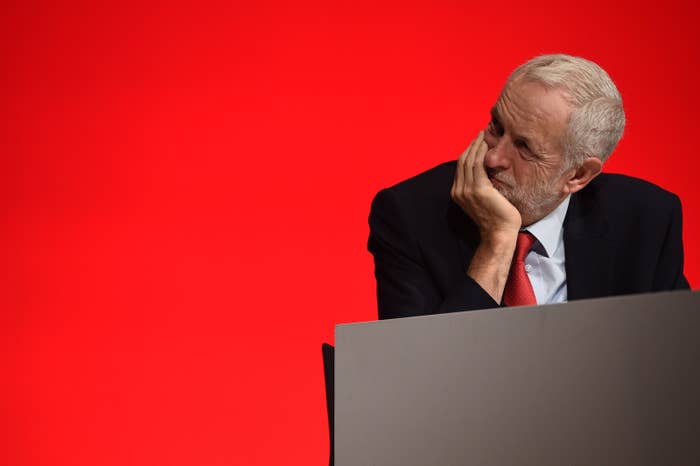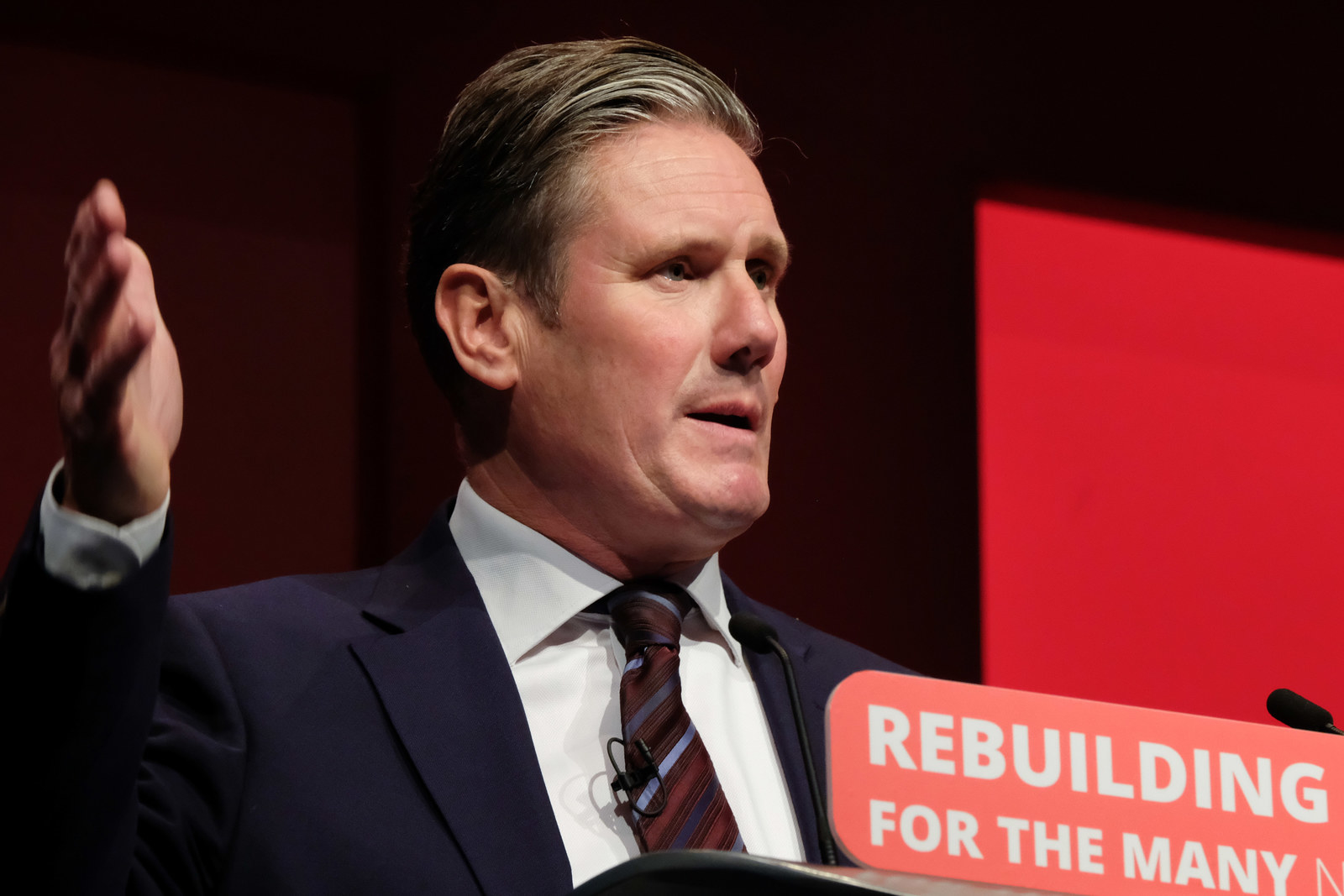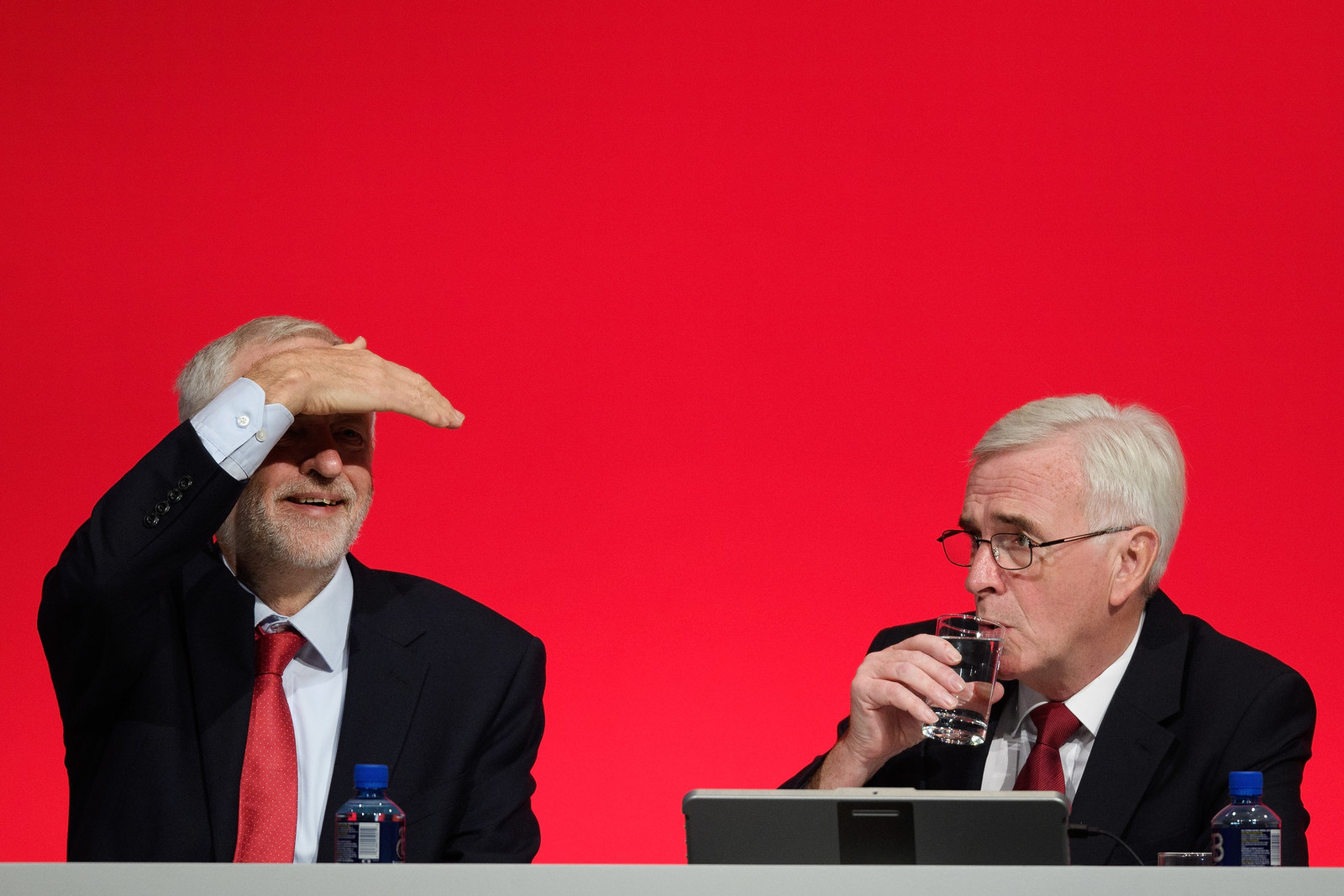
Over the summer, Jeremy Corbyn was the subject of terrible headlines almost daily as the anti-Semitism scandal engulfed the Labour party. There was a row over his presence at a wreath-laying for four Palestinian leaders thought to be connected to the Black September terror group, an unearthed video of him saying Zionists had “no sense of English irony”, and the reelection of an ally accused of anti-Semitism to the party’s top rule-making body.
It led many to believe this week’s Labour party conference in Liverpool would be another nightmare for Corbyn, with party splits on anti-Semitism and Brexit blown up by the media.
But instead, a series of successful policy announcements splashed across the front pages of the nation’s newspapers have led those on both sides — Team Corbyn and lobby journalists — to believe things might be changing.
“Last year we really had nothing to say, only a few key policies. This year we have had a big policy each day and then three more beneath it,” one Labour insider said.
This potential breakthrough has also been noticed by Labour’s rivals. A former senior Tory official, watching from afar, said: “It’s clear Labour have really professionalised this conference. [John] McDonnell’s speech was decent, measured — there was nothing in there we can easily dismiss, which is worrying. The communications operation has clearly improved.
“No big cock-ups, no real controversies, no anti-Semitism scandals, yet.”
Tories like to have a laugh at Labour but Rebecca Long Bailey detailing a strategy to save the high street. The Govt doesn't have one
Labour’s “policy drops” — those agenda-setting announcements that show up in newspapers — have been seen as a success in the days leading up to the conference.
The party’s share-ownership proposal for workers was splashed across the front page of Monday’s Financial Times and featured on the front of the Times. The policy of putting workers on company boards was the Sunday Times’ front page, while the party’s new second homes tax made page one of the Sunday Telegraph.
The thinking is that by placing specific stories with newspapers that will strongly oppose its approach editorially, the party will guarantee its policies the most prominent coverage.
On Tuesday morning, the Corbyn team were delighted when the Daily Telegraph and the Sun attacked their water nationalisation plans on their front pages. Aides quote polls showing that readers of the right-leaning papers often support Labour’s radical policies on areas like nationalisation, even if the coverage in those papers is critical. A Populus poll of such readers last year showed 83% of respondents supported returning water to public ownership.
BuzzFeed News has been told the policy is an attempt by Corbyn to appeal to pro-Brexit voters by offering them the so-called “control they want” in the form of democracy in the workplace, investment in communities, and public ownership.
Even the public rift between shadow chancellor John McDonnell and shadow Brexit secretary Sir Keir Starmer over the terms of the party’s backing for a public vote on the Brexit deal — the one big row that in previous years could have blown up the conference — was seen internally as a strategic win for the Labour leadership. In their view, the “constructive ambiguity” around the party’s position has headed off a split with the membership or the alienation of Labour supporters who voted Leave.

Then there was the op-ed written by former treasury minister and Goldman Sachs chair Jim O’Neill titled “Jeremy Corbyn’s Labour look poised to take on the status quo”, published in the Financial Times on the eve of conference. O’Neill lavished Corbyn and McDonnell with policy-specific praise, saying they were “offering the radical change that people seek”. It’s understood to have been one of the most-read FT columns this year.
If you ask those in Corbyn’s orbit what’s changed, many credit a behind-the-scenes structural shake-up of the press team. Previously, Labour had two separate units dealing with questions from the media: one for the leader of the opposition’s office (“LOTO”) and a second based in the party’s London headquarters (“Southside”).
Since the election last year, the two teams have merged into a single unit, with new hires bolstering the small group of trusted people around Corbyn. The Labour leader’s head of strategic communications James Schneider and press aide Sophie Nazemi run the show in terms of day-to-day dealings with the lobby. They work alongside the party’s head of press, Sian Jones, who arrived last year from the Communication Workers Union, while the whole operation remains overseen by Seumas Milne, still one of Corbyn’s closest confidants with the title “director of communications”.
“When Corbyn took over there was a clearance of anyone with experience who knew how to do with the day-to-day stuff,” one political correspondent for a right-wing newspaper said. “It was the Southside vs LOTO people.
“On any given day, you’d ring up a press officer and ask where a speech was on, or what was the latest announcement, and they’d have no idea.
“It also meant you could write anything about Jeremy and you’d get no pushback because it was obvious they weren’t actually reading the paper. We know they’re reading the paper because they’re calling us up to discuss the coverage.
“There’s also just really, and I mean really, basic stuff they’re doing now — like thinking about what stories might work for different papers.”
A leader writer from one of the tabloids said there had been a shift in attitude in newsrooms too. “The past few years there was probably a nagging feeling that Corbyn wouldn’t or couldn’t last; maybe he even thought that was the case. Now it’s clear he’s here to stay, so we’re all grappling with that.
“For a long time we were covering the philosophy — who Corbyn was. It feels as each day goes by, we’re covering his policies.”
That’s not to say the relationship is now friendly, and there are still incidents that journalists and observers are quick to point out. The Sun was banned from attending Momentum’s The World Transformed conference — organisers said it was done out of “solidarity with the city of Liverpool” over the paper’s coverage of the Hillsborough disaster — and recently Westminster sketch writers were left off accreditation lists for a speech from Labour shadow home secretary Diane Abbott.
“There are still certain shadow cabinet ministers who are still keeping the media at arm’s length, like Diane Abbott,” one lobby reporter said. “If someone’s announcing something you’d regularly not get invited and then suddenly you’d read about it in the Guardian.”
The leadership still adopt an antagonistic stance with the media, with attacks on newspapers remaining a crowd-pleaser for supporters. John McDonnell, for example, used part of his speech to conference on Monday to criticise the coverage of Corbyn and the archbishop of Canterbury.

“They’ve attacked my friend,” McDonnell said. “They’ve attacked him because he stands up for the ideals and beliefs that we all have.
“I just want to say, Jeremy, how proud I am of you for the dignity with which you’ve withstood that vilification.”
Corbyn may well do the same in his big conference speech on Wednesday. Last year he called out the Daily Mail and the Sun from the stage.
But for those who’ve attended the last few Labour conferences under Corbyn, the shift has been welcomed.
“I’ve noticed journalists are finally covering policy fringe events,” said a director from a prominent political think tank. “You’re seeing fewer park out at [Momentum’s] The World Transformed in an effort to live-tweet some sort of left-wing freakshow.”
“It’s like the media have been cycling through the stages of grief,” they added. “There was denial in 2015, then anger and depression. Now we’re at acceptance.”
